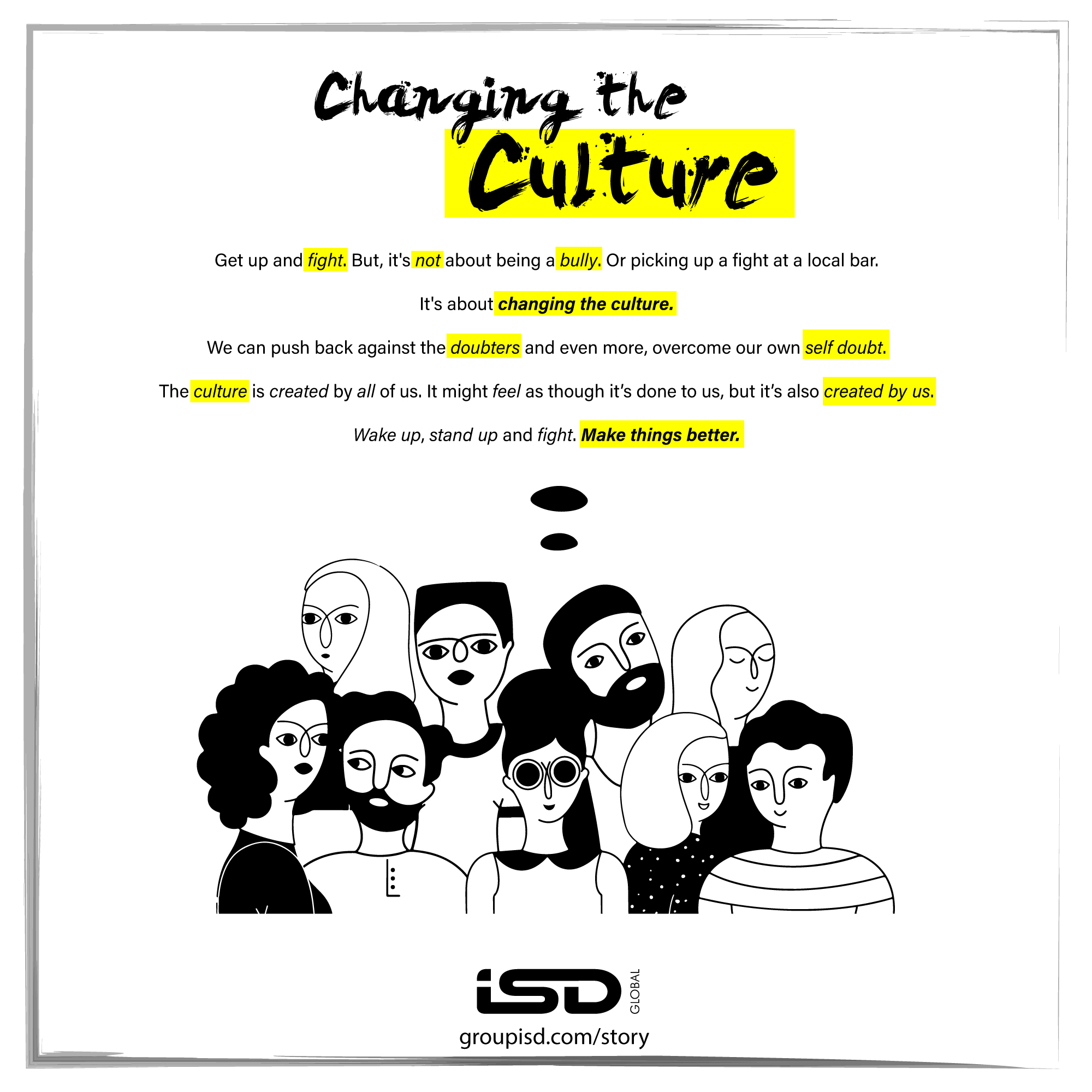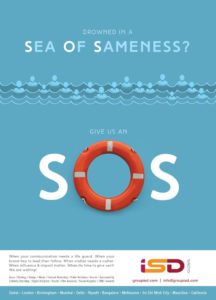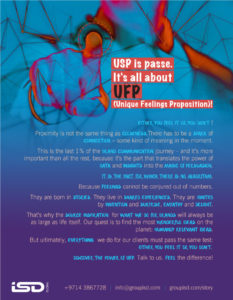A crystal ball gazing into what marketers and marketing should/could be doing in the coming times!
The future is an asset, not a guess. As such, using it rather than predicting it, is the only way to create the conditions for a tomorrow that is better than today.
Few industries will have more predictions or “future of” reports than marketing. After all, it’s in our best interest to be a step ahead of the consumer. However, rather than prediction, intention is what has enabled the creation of strong global brands, remarkable campaigns, game changing products and services and thriving economies.
Marketing can no longer be taught, investigated, and practiced as confined to transactions between buyers and sellers, but needs to be reconsidered as deeply embedded within society and our living world.
Critically, though, this is perhaps the perfect stage and time – an open invitation for marketers to stop viewing themselves and their trade as economists do. As preached by ad legend Rory Sutherland, “My definition of marketing is simply the science of knowing what economists are wrong about. The human mind does not run on logic any more than a horse runs on petrol.” Perhaps, rather than chasing more universal laws of marketing, and what Sutherland calls ‘measurebation’, why not chase the exceptions that bring exponential success? And why not use that to help shift a business culture focused on short-term advantage, obsessed with money and uninterested on much else?
Particularly when, as explained by Sutherland in an exclusive master class for The Marketing Academy,“ “Marketing could be viewed as the most determining factor for social progress – not just in terms of changing our buying habits, but also in transforming our values system.”
Well… so what? A typical career lasts for 80,000 hours; so if you can make your career just one percent better, then in theory it would be worth spending up to 800 hours working out how to do just that. The past holds the patterns, the present is blurred, but the future is from where such exceptions can be seeded and harvested. Dr Toby Ord, a Philosophy Fellow at Oxford’s Future of Humanity Institute, frames the point in a rather compelling way: “Of all the people whose wellbeing we should care about, only a small fraction are alive today. The rest are members of future generations who are yet to exist. Whether they’ll be born into a world that is flourishing or disintegrating – and indeed, whether they will ever be born at all – is in large part up to us.”
This conclusion holds true regardless of whether your moral framework is based on common sense, consequences, rules of ethical conduct, cooperating with others, virtuousness, keeping options open or just a sense of wonder about the universe in which we find ourselves. Regardless of your personal stance, this is an opportunity for a sound investment of your time. Now and then.
“We know how marketing works, but do we know what we want it to work for? Profit is the default worldview. Prosperity is the renegade counterpart. Why not both?”
Why not embrace ambiguity, apply genuine foresight and rigorously imagine possible scenarios where marketing’s effectiveness can be considered in novel and holistic ways?
THE POST-COVID POSSIBLE SCENARIOS
By all accounts, the COVID-19 coronavirus outbreak was not an unpredictable ‘Black Swan’, since many working in the emerging infectious diseases field provided several indications of its possibility. What is hard to predict, yet possible to project, is what may happen after this. The challenge of a global response is that there are multiple world views operating, all with different interests. Thus, predicting what the future may hold is pointless. But projecting alternative scenarios, preparing for potential risks and setting a course of action that helps actualize a desired future is a valuable lesson that futures studies can provide.
We need to stop talking in terms of the ‘new normal’. Please!!! What we are currently facing is a set of circumstances that have changed our environment. To what extent and for how long is unknown. This will again depend on your industry, your target audience and your ability to pave the road forward as opposed to waiting a return. How? Marketing’s ‘4Ps’ can be a good indicator. Move on from planned obsolescence to products that last longer or, even better, regenerate. From a burnout workforce to one that better integrates life and work. From the cumbersome commute and costly square metres to ubiquitous mobility and commerce convenience. From low prices funded by cheap labour to competitive prices enabled by smarter supply chains and business models.
What we have seen more than anything else is incredible adaptability, agility and versatility, none more so than within our small business community. If you weren’t digital before, you certainly are now. Again, every marketer needs to arm themselves with skills and pivoting abilities, rather than grand strategies and we could all learn something from SMBs. In this (as in any time of change) we need to focus on what we need to learn, NOT on what we already know. How do we use data to learn more, improve outcomes and make sure we are resonating with our consumers?
This time has also given us the opportunity to press the reset button. Change is not new to marketing. COVID-induced change across industries and economies has forced simultaneous change for all marketers and tested their adaptability. It’s on a bigger scale but not totally new. We have been forced to forensically look at ourselves, our budgets, the environment in which we are operating and, ultimately, our consumer. This has forced optimisation through digital, collaboration, through necessity and working in a much more agile manner. We may now expect some positive outcomes, like grit to NOT return to a normal that only partially served us.
The strength of a society is based on how we treat the weakest, not how we glorify the strongest. Young people are no longer the future, but the present.
This is the disruption that truly creates the fourth industrial revolution. Along with external innovation, there is inner innovation – a social revolution. Evidence-based science and technology inform public policy, not the whims of particular leaders. The insights from fighting COVID-19 are applied to climate change. There is a dramatic shift to plant-based diets. It is business transformed, social mutation, not back to usual. There are, however, concerns about privacy. COVID has accelerated tech adoption. Any brand that is still wrestling with ‘digital transformation’ will likely be struggling to keep up. It is wrong to think digital doesn’t incorporate creativity, just as it is wrong to think creativity has nothing to do with data. It’s both and, the sweet fruit of this marriage could mean the rise of sentient marketing. In this new reality, brands proactively take action to avoid errors, sensing adversity and remaining alert to micro-trends and opportunities in its environment. The sentient enterprise is frictionless and truly unified by its brand’s strategy – for real, not just as a model on the paper. Like many actions that the brain executes, the sentient enterprise listens to data and makes autonomous, real-time decisions without requiring a human’s conscious intervention.
Predictive marketing should absolutely be embraced but, as with all technology, success will be driven by more than just profit. Empathy, connection and responsibility, combined with value delivery, may become the new metrics assessed by brand trackers. Without delivering this, brands will quickly lose meaning and the ability to command price premiums and, ultimately, will commoditise.
For now, consumers are searching for brands that help them make good choices that support the well-being for all – planet, people and the economy. Brands able to demonstrably track progress across the triple bottom line will move away from niche indexes reporting on ‘green brands’ and become the new gold standard for the more mainstream ‘best brands’ reports.
Another (not so optimistic) scenario is that of a great despair looming large- Not an apocalypse, not a depression, no magic- just a slow and marked decline of health and wealth. Walls appear everywhere. The World Health Organisation and others try to contain it, but the virus repeatedly slips in and infects the bodies, minds and hearts of all. We are back to the Middle Ages. The efforts to address fail. The least connected to globalisation fare the best. The vulnerable are forgotten. Intergenerational memory of past pandemics informs reality.
As marketers, do we have enough influence to impact this scenario? This often depends so deeply on political and economic inputs that are beyond our control. However, as an industry we are overwhelmingly one of optimism, action and awareness. Adopting a Future Back strategy(something that we practice at ISD Global( https://bit.ly/3oCwAZD) is a manifestation of marketers’ ability to foresee this and disrupt inertia or apathy. There are many steps between here and there. Marketing doesn’t only have to be to ‘sell’ products and services. It can equally persuade and inform decisions about health choices, protecting the vulnerable, combating mental health deterioration and lessening the height of any ‘walls’. As a part of society, marketers would be part of the effort to resist the described decline. A few of us have already started.
A systemic view of what marketing effectiveness is, and can be, needs to be supported by data, insights, technology, media ecosystems and the power of brand. Proficiency is part of the solution and posturing part of the problem.
Above all, we have the unique opportunity to address the claim from the most important marketing theorist of the 20th century, Wroe Wilson, who said that, “What is needed is not an interpretation of the utility created by marketing, but a marketing interpretation of the whole process of creating utility.”
For the 21st century, all marketers can make an honest attempt at doing just that. If we succeed, we can expect to ignite a journey to a desired future.
If we fail…



